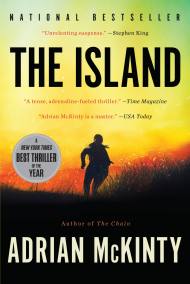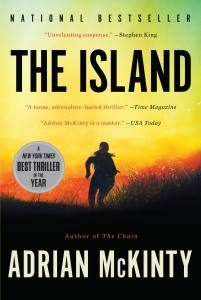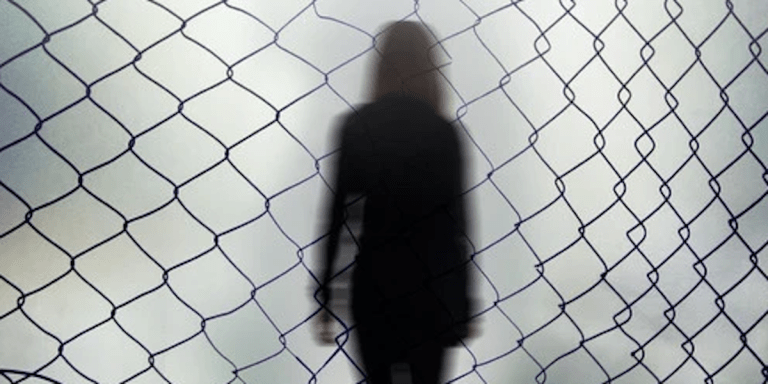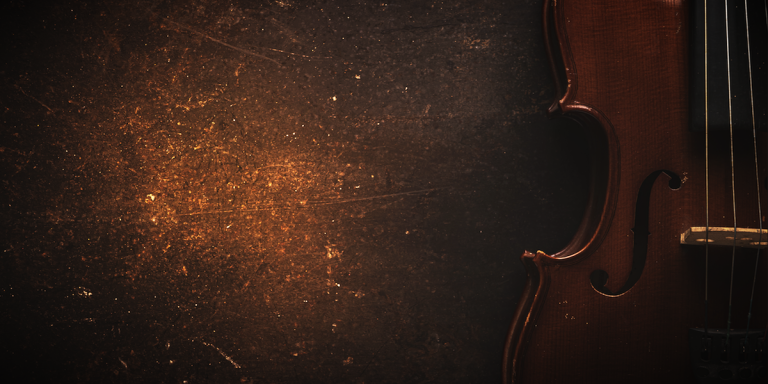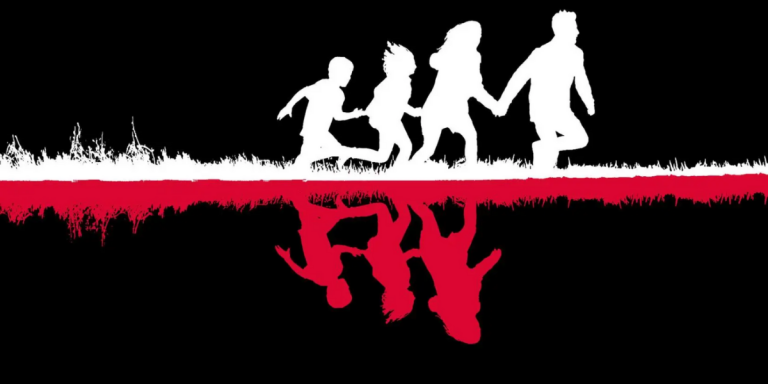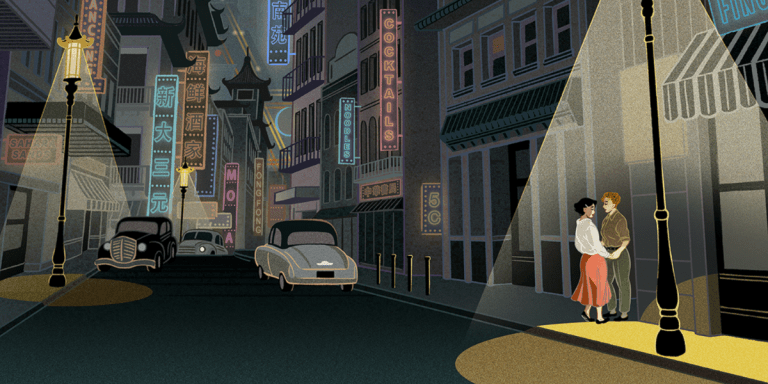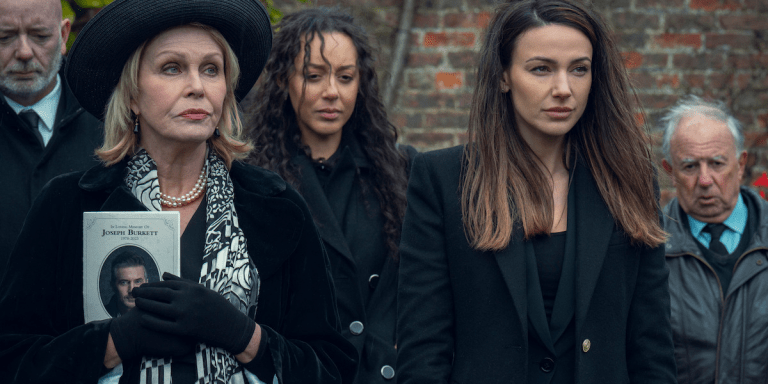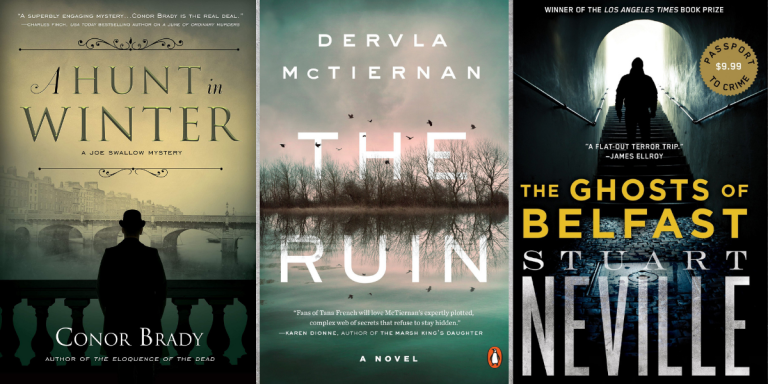Read the Excerpt: The Island by Adrian McKinty
1
The sign said alice springs 25, tennant creek 531, darwin 1,517. She took that in for a second or two.
If they somehow missed Alice they would have to go another five hundred kilometers (over three hundred miles) before they could get food, water, or gas. She looked through the windows on either side of the empty highway and saw exactly nothing. The radio had been drifting in and out for the past twenty minutes but the signal, perhaps, was getting a little stronger. She could make out John Lennon singing about “old flat-top” who was “groovin’ up slowly.”
She could identify pretty much every Beatles song from just one or two bars or a snatch of lyrics. Her parents and almost everyone else on Goose Island had worshipped John Lennon, and with only intermittent TV and internet reception, music had been even more important. The song ended and a DJ began his patter. “That was ‘Come Together,’ the opening track of Abbey Road. And before that we had ‘Hey Jude.’ Can anyone tell me what album ‘Hey Jude’ was on?”
The DJ paused for his listeners to reply.
“It wasn’t on any album, it was a seven-inch single,” Heather whispered.
“Nah, don’t call in. This isn’t a competition. It’s a trick question. ‘Hey Jude’ never got released on any of the original Beatles albums, just the compilations. Well, mates, I hope you enjoyed the balmy weather at midnight where we just hit the low temperature for the day — thirty-six degrees centigrade, which for you oldsters is ninety-six point eight degrees Fahrenheit.”
Tom groaned in his sleep and she lowered the volume. He had a busy morning ahead, and every second of sleep he could get now would help him. She turned to look at the kids. They too were asleep. Although Owen had been on his phone until about a half an hour ago, hoping against hope that a Wi-Fi signal would materialize out of the desert. Olivia had conked out long before that. Heather checked that both their seat belts were still securely fastened and turned her attention back to the empty road.
She drove on.
Rattling transmission. Moths in the headlights. The drumming of the Toyota’s wheels on the blacktop.
She reflected that the Mad Max movies had been skillfully edited to erase the actual tedium of driving through outback Australia. The landscape from Uluru had all been like this. It made one long for the comparative excitement of the morning traffic jam on the West Seattle Bridge. No other vehicles at all here; just the noise of the Toyota and the radio drifting in and out. There were no people around, but at a roadwork sign she could see big khaki machines covered in dust resting by the cutoff like slumbering mastodons.
She drove on and began to worry that she had taken a wrong turn. There was no sign of a city or an airport. The GPS hadn’t updated in a long time and according to it, she was lost in a vast blank nothingness somewhere in the Northern Territory.
Her uneasiness increased as the road surface got worse. She looked for signs of life ahead or out the side windows.
Nothing.
Damn it, back at the construction site she must have taken the wrong—
A big gray kangaroo suddenly appeared in the headlights. “Shit!”
She slammed on the brakes, and the Toyota shuddered to a stop with an alarming amount of deceleration. Tom and the kids were flung forward, then pulled back again by their seat belts.
Tom groaned. Olivia whimpered. Owen grunted. But none of them woke.
“Wow,” she said and stared at the kangaroo. It was still standing there, five feet in front of the car. Another second and they would have had a serious accident. Her hands were shaking. It was hard to breathe. She needed some air. She put the Toyota in park and, leaving the lights on, turned off the engine. She opened the door and got out. The night was warm.
“Scoot,” she said to the big kangaroo. “I can’t go on if you’re in the middle of the road.”
It didn’t move. “Scoot!” she said and clapped her hands.
It was still staring at the car. How could it not understand the universal language of scoot?
“The headlights might have blinded it. Turn ’em off,” a voice said from the darkness to her right.
Heather jumped and turned to see a man standing a few yards away from her in the desert. On learning that she was going to Australia, Carolyn had warned her about the “world’s deadliest snakes and spiders,” and when that hadn’t worked she sent her a list of movies about hitchhikers murdered in the bush by maniacs. “It’s an entire genre, Heather! It must be based on reality,” Carolyn said.
Heather had watched only one of them, Wolf Creek, but that was scary enough for her.
“I didn’t mean to startle you,” the man said. Her heart was thumping, but the man’s voice was so calm, gentle, and unthreatening that she was put immediately at ease.
“Um, sorry, what was that about the lights?” she asked.
“The headlights must have blinded it. Turn ’em off and give it a minute,” the man said.
She reached into the Toyota and killed the lights. The man waited for a few moments and then walked onto the road. “Go on, big fella! Go on out of it!” he said and clapped his hands. The kangaroo turned its head, looked at both of them with seeming indifference, and then, at its own pace, hopped off into the night.
“Well, that was something. Thank you,” Heather said and offered the man her hand. He shook it. He was about five foot six, around sixty years old, with dark, curly hair. He was wearing a red sweater with jean shorts and flip-flops. They had been in Australia now for nearly a week, but this was the first Aboriginal person Heather had come across. Out here in the middle of nowhere.
“You’re not from around here, I reckon,” the man said.
“No. Not at all. I’m Heather, from Seattle. Um, in America.”
“I’m Ray. I’m not from around here either. We just come in for the show. Me mob, that is.”
“Your mob?”
“Yeah, we just come in for the show. Come in every year.”
As her eyes adjusted to the darkness she saw now that there were a lot of people with him in the desert. In fact, it was an entire camp, maybe twenty or thirty in all. Older people and young children. Most of them were sleeping but some were sitting around the embers of a fire.
“Where are you trying to get to? Alice?” Ray asked.
“I’m trying to reach the airport. If I keep going on this road—”
“Nah, they should have signed it better. This road’ll take you on a big circle out into the bush. Just go back to where you saw the roadwork and go right. You’ll be in Alice in fifteen minutes. There won’t be any traffic.”
“Thank you.”
Ray nodded. They stood awkwardly for a moment. She found that she didn’t quite want the conversation to end. “What’s the show you’re talking about?” she asked.
“The Alice Springs show. It’s the big event of the year in these parts. The white fellas don’t like us to be around town but they can’t stop us coming in for the show.”
“What is the show? A state fair?”
Ray nodded. “Something like that, I reckon. It’s a livestock show but there’s food and music. Rides for the kids. People come in from hundreds of miles away. It’s usually in July. Having it earlier this year. Mobs from all over the territory, even some from Queensland. My mob’s been walking in for three days.”
She gazed at his “mob” again with wonder. These people—grandmothers, parents, young children—had been walking across this desert for three days?
“None of the nippers will have met an American before. Something for them to talk about. Mind if we say a quick hello?” Ray asked.
Heather spent a few minutes meeting Ray’s family—the ones who were awake, anyway. His granddaughter Nikko, his wife, Chloe. Chloe admired her earrings and Heather begged her to take them as a thank-you gift for Ray’s helping her back on the road again. The gift was accepted but not before Ray gave Heather a small penknife he’d made himself.
“I’m selling these at the show. Jarrah hardwood and meteor iron,” he said.
“Meteor iron?”
“Yeah. From the one that came down at Wilkinkarra.”
The penknife was carved with emus and kangaroos on one side and what she took to be the Milky Way on the other. It was beautiful. She shook her head. “I can’t possibly take this! It must be worth hundreds of—”
“I’ll be lucky to get twenty bucks each. Take it. It’s fair dinkum. An exchange. The earrings for the knife. See the ring at the bottom of it? I’ve been told that if you put your keys on that and put it in the tray outside the metal detector with your phone, you can even fly with it. They just think it’s a key-fob thing.”
Ray was not to be talked out of the gift and she accepted it with good grace. She got in the Toyota, waved goodbye, and retraced her journey to the roadwork sign; this time she took the correct turn for Alice. As the town got closer, the road became more certain of itself. Houses and stores loomed out of the dark. She saw campfires with men and women gathered around them. More Indigenous people who, apparently, had all come in for the show.
The phone reacquired a GPS signal. The radio came back on. “At the next junction, take a left for Alice Springs airport,” Google Maps suddenly announced in a perky Australian accent.
Heather was at the airport ten minutes later. She drove to the rental car lot and turned the engine off. A sign said do not feed dingoes, wild dogs, or feral cats above a drawing of a sad-looking dog and an indifferent cat. She made sure the doors were locked and let everyone sleep for a while longer.
“We’re here,” she said finally and gave Tom a gentle shake.
He stretched. “Oh, great. Thank you, honey. I would have driven some! You should have woken me. Any problems?”
“Not really, but there was a big kangaroo in the middle of the road,” she said, attaching the penknife to her key chain.
“You saw a kangaroo and you didn’t wake us? Come on, Heather!” Owen grumbled from the back seat before a yawn convulsed him.
They woke Olivia and got their bags and walked dazed and bleary-eyed into the terminal building. They were three hours early for the flight. Tom had never been late for a flight in his life and he wasn’t going to start a bad habit now. The airport was deserted except for an overly made-up goth couple who apparently looked nothing like their passport photographs. When it was her turn at the X-ray machine, Heather smiled at an older female security officer.
“Goths these days, too much makeup and not nearly enough pillaging,” she said. The woman thought about it for a second and then chuckled to herself. She waved the family through.
No one confiscated the penknife. Which was lucky for Heather. Because two days later it would save her life.
2
The fact that he kept returning for massage therapy had more to do with the connection that they had made than any “injury.”They walked a sleepy Owen and Olivia to the gate. The flight boarded early and they were the only passengers in the business section; in fact, they were practically the only passengers on the whole plane. Tom was a nervous flier. You wouldn’t think from his professional persona that he ever got nervous, but he did. When he had first come into the massage clinic, Heather realized almost immediately that his back problems were not the result of “an old skiing injury” but tension that he was storing in his shoulders and lower back. Doctors were often the most skeptical about the benefits of a good massage, but all she had had to do was grind it out and he was 80 percent cured by the end of the first session.
The flight attendants began making the safety announcements. She patted Tom’s leg and he gave her a smile.
“I’m hungry,” Owen said.
Heather fished in her backpack and offered him a granola bar. He shook his head. “Not those ones! Oh my God, Heather, you know I hate those ones!”
“We finished all the strawberry ones. This is all we have left,” Heather said.
“Forget it, then!” Owen said. He put his headphones back on, pulled up his hood, plugged his phone into the charger, and restarted his driving game.
Heather did a little meditation while the plane taxied. Everything is the path. Her tiredness was the path, Owen’s dirty look was the path, Tom’s stress was the path, Olivia’s beautiful, sleepy face was the path.
They took off just before the dawn, and the landscape from the left side of the aircraft was spectacular, the sun coming up over what seemed to be a vast red emptiness. Australia was almost as big as America but had less than a tenth of the population. A desert of ocher, red, and vermilion. Immense Saharas of iron-oxide nothingness interrupted by huge sandstone boulders that looked like grave markers for a long-extinct race of giants. She thought of Ray and his “mob” walking through that to get to the show. It beggared belief.
Her eyes were heavy. I’ll just close them for a minute, she thought. She woke when they touched down in Melbourne. She’d been dreaming about Seattle. Snow in the woods of Schmitz
Park. “Where . . . ” she began and then remembered.
The airport was like all airports, and the city from the back of a big SUV seemed like all cities. Tom was in the front chatting with Jenny, the conference rep. Heather sat in the back next to a still dozing Olivia. Owen was awake now, buried in his book about Australian snakes, his hood pulled up, not looking out the window. At dinner parties, one of the things Tom and his Generation X friends worried about were Millennials and Generation Zers not “engaging fully with the world,” but Heather didn’t blame Owen at all for not engaging. The world had taken his lovely mother from him just before his twelfth birthday. The world had shoved a skinny stranger who was supposed to be a “new mom” into his life. What a crock.
“As per your request, I’ve put you in an Airbnb on the beach,” Jenny said, leaning around and looking at Heather. She was a young woman in her twenties, copper-haired, smiley.
“I didn’t ask for—” Heather began.
“I asked for it, sweetie,” Tom said. “So much better than the conference hotel. I checked it out online. It’s great. A home away from home.”
“Oh, sure, that’s fine,” Heather agreed, although secretly she had been looking forward to room service and a bit of pampering while Tom did his conference stuff.
They drove along the glittering Melbourne shoreline, past a lighthouse and a marina. There were palm trees and a beach and an indigo ocean.
Tom gently prodded Olivia. “This reminds me, why do you never see elephants hiding in palm trees?”
“Why?” Olivia asked sleepily. “Because they’re very good at it.” “No more dad jokes!” Olivia pleaded.
“I thought it was funny,” Heather whispered. Tom chuckled, took Heather’s hand, and kissed it.
“But I wouldn’t quit doctoring to go into stand-up,” Heather added.
“Look at you, crushing my dreams,” Tom said, slapping his hand to his forehead.
“Are you enjoying Australia, Heather?” Jenny asked.
“It’s my first time ever outside of America! So, yes, it’s all very exciting,” Heather replied.
“Jet lag over?”
“Nearly, I think. We had two days in Sydney and two days in Uluru. So it’s a little easier each morning.”
“And what is it you do?” Jenny asked.
“I’m a massage therapist,” Heather said. “I mostly look after the kids now, but I still have a couple of ornery clients who refuse to go to anyone else.”
“Me mate Kath is a physiotherapist,” Jenny said. “Kath’s a riot. The stories she has. Strict, she is. Makes the old folks do their exercises. Kath says the difference between a physiotherapist and a terrorist is that you might have a chance of negotiating with a terrorist.”
“I’m not quite a licensed physical therapist just yet,” Heather said, although she knew Tom hated it when she mentioned that. “Well, here’s the bay,” Jenny continued. “We’re right on it.
Weather will be perfect for the beach. You like the beach, eh, kids?”
Neither of the kids said anything. They turned down a quiet suburban road called Wordsworth Street and stopped at a large rectangular modernist house.
“There’s a pool—you and the kids can swim while I work,” Tom said with a big grin. He was very handsome when he smiled, Heather reflected. It made him look younger. Actually, he looked terrific for his age. Late thirties, you would have said, though he was forty-four. There was almost no gray in his hair, and his diet kept him lean. His hair was longer now than he normally let it grow and this morning it fell across his forehead like the wing of a young crow. According to the lengthy profile in the article on “Seattle’s Best Doctors,” his eyes were a “severe, chilly azure.” But not to her. To her they were intelligent, playful blue eyes. Loving.
Jenny helped them carry their bags to the porch. “Anyone need the toilet? Fab toilets in here. Heather? Looks like you gambled a little on a fart and lost, no?”
“Er, I’m fine.”
“Great house. Nothing but the best for one of our keynote speakers. Guy who owns it is a wanker, but his place is a beaut.”
They went inside a large open-plan living room furnished with leather sofas and cushions and expensive-looking rugs.
“Bedrooms are upstairs,” Jenny said. “All with sea views.”
“I have to do the meet and greet,” Tom told Heather. “But I’ll be back tonight. You just relax and have fun.”
Heather kissed Tom on the cheek and wished him luck. “Take care, honey,” she added, sitting down.
Jenny smiled. “I’ll look after him. It’s my job. Any questions?” “Um, what’s a wanker?” Heather asked.
“A compulsive masturbator,” Jenny replied. Heather sprang up from the sofa.
“It’s not meant literally, sweetie,” Tom said. “It’s merely an expression.”
And then, just like that, the rep and Tom were gone. “Damn, look what Cardi B just posted!” Olivia said, showing
Owen her phone.
“Oh my God. Why does she even bother? She’s just a Walmart Nicki,” Owen said.
Olivia laughed. “That thing about Drake? Drake wouldn’t work with her.”
“Are you guys talking about Drake . . . the rapper?” Heather attempted.
“Seriously, Heather. Don’t even,” Olivia said. “You don’t know what we’re talking about.”
Owen was going to pile on but another big yawn took him and then Olivia yawned too. Heather got them upstairs and ushered them each into a bedroom, which, mercifully, they did not fight over.
She picked out a room for herself and Tom. It overlooked the street and the lighthouse and was decorated in a kind of Aztec style. When she checked to see if the kids wanted anything to eat, she found both of them dozing on top of their beds.
Heather took off Owen’s shoes and tucked him under the duvet. She did the same with Olivia and pulled the curtains closed and went back to the master bedroom. The conference organizers had provided them with what was presumably an expensive bottle of red wine. She opened it and poured herself a glass, kicked off her slip-ons, and stripped out of her T-shirt and jeans. She put on a robe and was about to slip into a shower when she noticed the door that led outside to a small but perfectly serviceable rooftop swimming pool.
Her bikini was packed away in one of the suitcases, but the rooftop was protected by a privacy wall. Heather carried the wineglass to the pool’s edge, slipped out of the robe, and dropped into the cold blue water. She allowed herself to sink to the bottom of the pool and let the driving and the dust and her aches and pains ease slowly away.
This had all been so much more stressful than she’d been expecting, the kids 24/7 with no school or friends to play with. She opened her eyes and looked at the big indigo Australian sky through the lens of pool water. So like a Puget Sound sky but so strangely alien too.
She’d been holding her breath for thirty seconds.
She had known this was going to be a tough trip but she hadn’t realized quite how tough. These past five days she’d barely had a moment to herself.
Children were fishing lines entangling you in their cruelties and wants and sticky fingers and dramas and disappointments. The mommy industrial complex made you think it was all going to be hugs and campfires and peewee soccer practices, and that was all bullshit.
She burst to the top of the water at thirty-five seconds. She gasped for air and found that she was on the verge of tears. She fought it and the tears went away. She shook her head and climbed out of the water.
Back inside, she went through the wrong door and found herself in a massive closet that was empty but for hundreds of coat hangers. The closet had a huge mirror at its rear. Heather hadn’t seen a mirror in a few days. It sucked her in. Her mother, the painter, claimed that sadness always leaked through the eyes. Heather’s green eyes looked more tired than sad. Her face had picked up a tan and her hair had bleached a little in the sun. She’d lost weight, which was not a good thing because it was all muscle mass. She hadn’t been doing her exercises or yoga. She looked frail, like one of those Manson chicks, and when Tom told people she’d grown up on a sort of commune you could tell that they were thinking NXIVM sex cult or worse. Of course it was nothing like that.
She grabbed her phone, sat cross-legged on the floor, and dialed a number.
“Hello?” a female voice said. “Hi, it’s me.”
“Whoa, girlfriend! I was wondering if I was ever going to hear from you again. Pretty sure the hitchhiker killers or the spiders were going to get you.”
“Not yet. What time is it there, Carolyn?” “It’s five thirty. Five thirty in the evening.”
“Here it’s the morning. Tomorrow morning, I think.”
“Man, that is freaky. Seriously, are you looking out for the spiders? And did I warn you about those blue-ringed octopuses that kill you in ten seconds?”
“You did. Funnily enough, very few blue-ringed octopuses in the desert,” Heather said.
“Don’t blame me when they get ya. How’s the trophy husband?” “He’s good.”
“I’ll bet he is! He’s a tall drink of water, that one. And how are the little monsters?” Carolyn asked.
“You shouldn’t call them that.”
“Ha! I knew you would get Stockholm syndrome sooner or later. Cough me an SOS in Morse code if he’s in earshot.”
“He’s not and everything is OK.”
“You’ll come and see me when you get back? Show me your photos, tell me everything?”
“Of course.”
“I haven’t seen you for ages.”
“The ferries—it’s complicated.”
“He doesn’t like you coming back here, does he?”
“You’re crazy.”
“It’s the drugs, isn’t it? He thinks we’re all degenerates. You should never have told him about our marijuana crops. And yet he gives his own kids so-called prescription drugs. They’re hypocrites, these doctors, and—”
“Oh my God, Carolyn, can we change the subject? How’s everyone at home? Tell me about the Sound. What’s the weather like there?” Heather interrupted.
“Let me go to the window. You can’t see shit. Fog and rain. Drizzle.”
“I dreamed it was snowing,” Heather said. “How’s Scotty?”
“He’s hanging in there. He came by to see me yesterday. Just nudged open the door and came in. I gave him a couple of pets and he fell asleep on the mat.”
“Seen my dad?”
“Yup. He’s good. Been out kayaking.”
“And my mom?” Heather asked.
“On her good days she just flicks paint at you as you go past.”
“And on her bad days?”
“She insists you come in and look at her art.”
“Oh, boy, I miss you guys. But I’m seeing stuff in the world now, you know?”
“Tell me! What’s Australia like?”
“It’s beautiful. Stark and red and gorgeous. And the people are super-friendly.”
“I’ve heard that. Look out for any random Hemsworths and pass on my number.”
“I will,” Heather said. “Are you OK?”
“Yeah, I’m great.”
“Writing any songs?” Heather asked.
“No. You?”
“No.”
Silence down the line. A little bit of tension creeping into the static.
“You know I’m real happy for you, honey . . . ” Carolyn said. “I’m sensing a but coming.”
“But, man, when you left, you said you wanted to be a singer or an actress. You said you wanted to soar—”
“And now I’m just a boring housewife crashed to earth in a tangled mess of wax and feathers,” Heather said.
“See? You had talent. That’s a lyric right there. Who knows where you could have gone? New York? Hollywood?”
Heather yawned. “I better go, I gotta take the kids to the beach in a bit.”
“God, he really has you where he wants you, doesn’t he? Twenty-four-hour live-in nanny with benefits and he doesn’t have to pay you a dime.”
“That’s not the way it is,” Heather said.
“Isn’t it? Be honest with me, girl. I won’t report you to the Mommy Gestapo.”
Heather sighed. “Well, it’s been a tough week. A tough year, in fact . . . it’s—”
“Spoiled rich kids, right?”
“No, look, it’s me, I guess. I was never an aunt, and you know babysitting was never my thing. No one tells you how mean they can be. I love Tom and I’m so grateful for everything he’s done for me, but it’s just . . . exhausting sometimes.”
“Of course it is. Even with good kids.”
“They’re not terrible and I feel bad for them . . . their mom—”
“You gotta protect yourself, honey! It’s about you and your life.
Don’t end up like the first wife, drunk and dead at the bottom of the stairs.”
“Carolyn! You know that’s bullshit. Judith had MS, balance problems—”
“Just teasing. I’ll swap lives for a bit, even with the shitty kids, if you think he’d go for a feisty redhead.”
“He might.” Heather laughed.
“Speaking of booze, are you still going to that winery tour you talked about?”
“I don’t know. I hope so,” Heather said and yawned again. “I need sleep. Later, babes.”
“Take care, honey.”
“You too. Pet Scotty for me.”
She hung up, went to the bedroom, lay facedown on the bed, and was asleep in seconds.
Owen woke her an hour later by poking her in the neck. “You were supposed to take us for ice cream,” he said.
“What? Where . . . oh, yeah, sure. Beach, then ice cream. Give me five minutes.”
She went to the bathroom to freshen up and opened the door a little when she heard her name. “Don’t tell Heather but I found a record player downstairs,” Olivia was saying. “A shit-ton of vinyl.”
“Don’t tell Dad either! I’ll bet there’s classical.”
“At least with Dad, it’s kind of age-appropriate. With Heather, it’s such Millennial hipster bullshit. I’m dreading the day when she confesses that she’s a Hufflepuff and asks us what Harry Potter house we’re in,” Olivia said.
“Cringe city!” Owen agreed and both kids laughed.
Heather closed the bathroom door and allowed herself a “Little shits” under her breath. The kids were already accomplished child-soldiers in the war between generations. And really, if either of them had taken the trouble to look at her Spotify playlists, they would have found Porridge Radio, Chance the Rapper, Vampire Weekend, Post Malone, Big Thief, the Shaggs . . . she sighed and realized she was never going to win this one.
The house was well stocked with sunblock and beach towels. She gave Owen his Ritalin, Olivia her Lexapro, and the three of them went across the road and found themselves on St. Kilda Beach. Owen almost never took off his hoodie but it was so warm, Heather supposed that even he would eventually cave.
“Come on, let me take you both in the ocean,” she said. “No way,” Owen grunted but Olivia followed her down to the water. Olivia was lean, like her dad, and she had her mother’s blond hair and coloring. She’d been growing fast in the past year. Her mind may have been grieving and shutting down but her body didn’t know that. The body was stretching out. Fourteen, but you would have guessed sixteen or older. Heather and Olivia tried the water but it was surprisingly cold. Owen dipped in a toe and gave them a you-tricked- me scowl.
They found a café selling fish and chips and ice cream at the St. Kilda Sea Baths. Heather was convinced she’d been short-changed by almost three dollars but she was too timid to kick up a fuss about it. She silently reproached herself as they ate and walked back across the road to the house. She made sure both kids showered and dried off. Olivia had finished all her homework and offered to help Owen with the astronomy worksheet for his science and nature class. Olivia had gotten through the past year OK but poor Owen was having to repeat his science course. Owen refused the assistance and a fight ensued. Heather sat them both down in front of a Godzilla movie on the TV.
She was exhausted. But she knew this was the price she had to pay—to be with Tom, she had to be with the kids. And she wanted to be with Tom. She loved Tom, not despite all his little quirks and weirdnesses, but because of them—the whole package. The smarts, the grief, the fastidiousness, the dad humor, the way he looked at her first thing in the morning, the way he was changing himself for her. When he told her the thing about the wanker, he hadn’t rolled his eyes the way the Tom of three months ago might have. He hadn’t quite conquered all of his condescension, but he was trying to be a better man.
She told the kids she was going for a walk; she went around the block and found a 7-Eleven. The clerk told her a pack of Marlboros cost twenty bucks and after he showed her the price sticker, she believed him. She smoked two cigarettes and listened to Starcrawler’s “Bet My Brains” on the way back home.
The kids were digging the movie.
Tom texted her several ice-breaking “jokes” for his big conference speech with the query Funny or not funny?
She didn’t have the heart to text back Not funny but she made a mental note to tell him to do one joke, maximum.
When Godzilla finished, she opened a closet marked board/ bored games. Both kids moaned but she imposed her will and they decided on Risk. She found the record player and, ignoring the Beatles albums, put on Mozart.
When Tom came home at six p.m. looking beat, Olivia had almost taken over the world. He sat happily on the sofa and watched, enjoying the fact that the kids were doing something delightfully old-school and loving the hell out of it. She brought Tom a glass of wine and as they retreated to the kitchen, Olivia mopped up the last of the resistance in Asia.
“How was your day?” Tom asked her.
“We all had a nap and then I took the kids to the beach. How was your day?”
“Fun. I met the local bigwigs in orthopedic surgery. We swapped knee stories. Australian knees are as crappy as American knees. Thank goodness,” Tom said, kissing her.
“Did you see I won? Oh, no kissing, please!” a triumphant Olivia said, coming into the kitchen with Owen trailing behind her.
Tom laughed. “Listen, I’ve got a number of recommendations for dinner places. And then tomorrow, while I work on my speech, you guys can chill.”
“Forget chilling! We haven’t seen a single cool animal since we got here,” Owen said. “Jake said on my Instagram that he thinks I’m really in Utah.”
“I’m sure Jake was only teasing.”
“Dad, please! We can’t stay here! We have to explore a bit before we go home. We have to at least see some koalas. Please, please, please!” Owen said, and even Olivia joined in with an only semi-sarcastic final “please.”
“I think they make a fair point,” Heather offered.
“Didn’t you want to go to those wineries we talked about?” Tom asked.
Heather shook her head. “Let’s do something for the kids.” Tom nodded wearily. “All right, I’ll think about it,” he said.
Order the Book
After moving from a small country town to Seattle, Heather Baxter marries Tom, a widowed doctor with a young son and teenage daughter. A working vacation overseas seems like the perfect way to bring the new family together, but once they’re deep in the Australian outback, the jet-lagged and exhausted kids are so over their new mom.
When they discover remote Dutch Island, off-limits to outside visitors, the family talks their way onto the ferry, taking a chance on an adventure far from the reach of iPhones and Instagram.
But as soon as they set foot on the island, which is run by a tightly knit clan of locals, everything feels wrong. Then a shocking accident propels the Baxters from an unsettling situation into an absolute nightmare.
When Heather and the kids are separated from Tom, they are forced to escape alone, seconds ahead of their pursuers.
Now it’s up to Heather to save herself and the kids, even though they don’t trust her, the harsh bushland is filled with danger, and the locals want her dead.
Heather has been underestimated her entire life, but she knows that only she can bring her family home again and become the mother the children desperately need, even if it means doing the unthinkable to keep them all alive.
By clicking 'Sign Up,' I acknowledge that I have read and agree to Hachette Book Group’s Privacy Policy and Terms of Use
